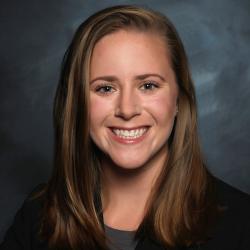Eureka Therapeutics, which has been developing methods to facilitate the development of cell therapies that can treat solid cancers, has raised $45 million to prove out its technologies in the clinic.
To enhance its chances of success, the Emeryville, CA-based company has struck an agreement to work with Lyell Immunopharma, another San Francisco Bay Area biotech. Lyell, which is also working on developing on T-cell therapies to treat cancerous tumors, led Eureka’s new funding round, a Series E financing.
Cell therapies use a patients’ own living T cells, reengineered to better fight cancer. Two CAR-T cell therapies have been approved for blood cancers, but solid cancer tumors remain an elusive target.
“Solid tumors are very different from blood cancers in that they build a castle, a defense system,” Eureka CEO Cheng Liu said. “For engineered T cell therapy you need technologies that promote T cell infiltration to solid tumors.”
That’s because most targets that drug developers want to hit on solid tumors are found inside the cancer cells, rather on the cell surface. (CAR-Ts attack targets primarily found on the tumor surface.) The firm’s drug candidates are called T cell receptor mimic (TCRm) antibodies, which, like the T cell receptor drugs to which they are similarly designed are viewed by Eureka as a potential way to get to targets within cancerous tumor cells. Like TCR therapies, TCRm antibodies are meant to take advantage of the targeting power of engineered T cells, but also are designed to leverage antibodies’ ability to strongly bind to specific targets.
Lyell hasn’t said much about its approach, and Liu said he couldn’t provide additional details. But back in October, Lyell signed a five-year development deal with GlaxoSmithKline (NYSE: GSK) and Rick Klausner, Lyell’s founder and CEO, said his firm was working to reimagine how patient cells are prepared to be made into therapies, to ensure the cells could continue to function once in the tumor microenvironment, and using protein engineering to make solid tumor-directed cell therapies more specific and safe.
Liu said he is especially optimistic about the partnership because of the extensive experience of the Lyell management team.
“I do not believe a single company and single technology can solve all the problems,” Liu told Xconomy. “By teaming up, working with academics and industry and teaming up between companies like what we have done with Lyell so that we can pool our resources and our technologies, together we have a much better chance of achieving success.”
Klausner previously co-founded CAR-T developer Juno Therapeutics (acquired by Celgene for $9 billion in 2018) and Illumina (NASDAQ: ILMN) spinout Grail, which is working on a blood test for early detection of cancer. Before, he headed the National Cancer Institute, serving as its 11th director from August 1995 to September 2001.
In partnership with Lyell, Liu said the fresh cash will allow Eureka to advance its lead program, currently in a Phase 1/2 clinical trial in patients with advanced hepatocellular carcinoma (HCC), the most common type of liver cancer, to proof of concept.
Eureka last raised financing in 2018, reeling in a $60 million round led by Acorn Pacific Ventures. GP Capital and Eureka’s earlier major investors also participated.
Other companies, including TCR² Therapeutics and RootPath in the Boston area, are also working to advance cell therapies that work on solid tumors.
Image: iStock/Pattanaphong Khuankaew

